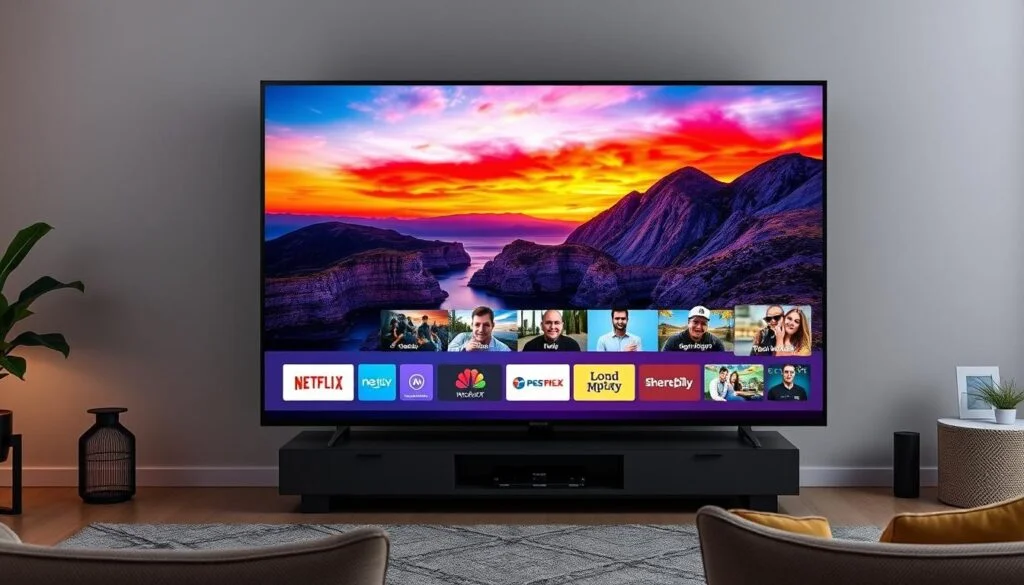
With the rapid evolution of technology and the growing demand for flexible, on-demand entertainment, IPTV (Internet Protocol Television) has become a game-changer in how people consume media. Whether you’re looking to cut the cord, save on traditional cable bills, or access international channels, IPTV is one of the top solutions most people search for on Google today.
In this article, we’ll cover the ins and outs of IPTV, including what it is, how it works, why it’s becoming so popular, and how to choose the best service for your needs.
What is IPTV?
IPTV stands for Internet Protocol Television. Unlike traditional TV services that rely on satellite or cable, IPTV delivers content over the internet. This allows users to stream live TV, on-demand content, and even catch-up shows through their internet connection, giving them more flexibility and control over what they watch.

This form of television distribution has been gaining popularity globally, as it’s not limited by geographic regions or traditional broadcasting methods. Instead, as long as you have a stable internet connection, you can access your favorite shows, sports, and news from almost anywhere.
How Does IPTV Work?
IPTV transmits TV channels and shows through the internet using Internet Protocol (IP). This process involves compressing and encoding television content into data packets that can be transmitted over the internet. These packets are then decoded by an IPTV service provider or an IPTV box, allowing you to stream content in real time.
Unlike conventional TV that broadcasts channels simultaneously, IPTV uses a client-server architecture. The service works by connecting to a network (the server) and transmitting content to a device (the client), whether it’s a smart TV, tablet, or mobile phone.
Key Components of IPTV:
- Content Delivery Network (CDN): Ensures the quick delivery of video content.
- Middleware: The interface between users and the IPTV system, managing content, billing, and user access.
- End User Devices: Devices such as smart TVs, set-top boxes, smartphones, and computers that receive IPTV content.
Popular Searches Related to IPTV
According to Google search trends, most people search for specific queries about IPTV to learn more about its capabilities and options. Some of the most common searches include:
- Best IPTV Service Providers: People often want to know which providers offer the best channels, customer support, and features.
- Free IPTV: Many users look for free IPTV services, although these often come with limitations or legal concerns.
- IPTV for Smart TV: As smart TVs become more common, many are interested in how to install IPTV apps directly onto their devices.
- IPTV for Sports: Sports enthusiasts search for IPTV services offering live sports coverage, particularly for international events that are not available through local providers.
- IPTV vs Cable: As more people cut the cord, comparisons between IPTV and traditional cable services are common.
Why Is IPTV Gaining Popularity?
- Cost-Effectiveness: One of the most appealing aspects of IPTV is its affordability. IPTV services tend to be significantly cheaper than traditional cable or satellite packages. Many people switch to IPTV to reduce their monthly bills while maintaining access to premium content.
- Flexibility and Convenience: With IPTV, viewers are not restricted by fixed schedules or specific devices. You can watch your favorite shows on a range of devices like smartphones, tablets, laptops, or smart TVs. This flexibility makes IPTV ideal for people who travel or those who prefer to watch content on the go.
- Global Access: IPTV services typically provide access to international content that might not be available through local cable providers. For example, if you’re interested in watching shows or channels from other countries, IPTV allows you to bypass regional restrictions and access a more global range of content.
- Customizable Packages: Unlike traditional cable, which often bundles unwanted channels, IPTV services often allow users to choose which channels or packages they want. This customization ensures you only pay for what you watch.
IPTV Service Categories
There are several types of IPTV services available, each catering to different viewing needs. These include:
- Live IPTV: Similar to traditional television, live IPTV lets you watch channels in real-time. This is particularly popular for sports, news, and event broadcasts.
- Time-Shifted IPTV: For those who can’t watch a live broadcast, time-shifted IPTV allows users to view content at a later time. Popular examples include services like catch-up TV, where viewers can access shows or events after they’ve aired.
- Video on Demand (VOD): This IPTV model allows users to select movies, shows, or other content from a library to watch at any time. It’s similar to Netflix or Hulu but available directly from an IPTV service.
- TV on Demand: A hybrid of live and on-demand IPTV, this service allows users to watch specific shows, series, or sports events after they have aired but with limited availability.
How to Choose the Best IPTV Service
When searching for the right IPTV service, there are several factors you should consider to ensure you’re getting the best experience:
- Channel Variety: Check if the IPTV service offers channels you’re interested in. Some providers may specialize in international content, while others focus on sports or premium movie channels.
- Device Compatibility: Ensure the IPTV service is compatible with your preferred devices, whether it’s a smart TV, smartphone, tablet, or streaming device like Firestick.
- Streaming Quality: Look for services that offer high-definition (HD) or 4K content, especially if you plan on watching sports or movies. Low-quality streams can diminish your viewing experience.
- Customer Support: Good customer support can make a big difference, especially if you run into technical issues with your IPTV service. Ensure the service provider offers timely and reliable support.
- Legal Considerations: Some IPTV services may operate in a legal gray area. It’s important to ensure the service you’re using is legitimate to avoid potential legal issues down the road.
The Legal Side of IPTV
One of the top concerns that arise when people search for IPTV on Google is its legality. Not all IPTV services operate within the boundaries of the law. Legitimate IPTV providers have proper licenses and distribution agreements, much like traditional cable services. However, some services offer unauthorized access to premium content, which may lead to legal repercussions for both the provider and the end-user.
When selecting an IPTV service, it’s critical to choose licensed providers that offer legitimate access to channels and content. Doing so ensures you won’t face potential legal issues and guarantees better quality and customer support.
The Future of IPTV
The future of television seems to be headed in the direction of IPTV. As more people shift away from traditional cable services and toward internet-based streaming, IPTV will continue to grow.
Technological advancements such as 5G and improved broadband access will further enhance IPTV’s capabilities, allowing for faster, more seamless streaming of high-quality video. Additionally, the integration of IPTV with emerging technologies like artificial intelligence (AI) and virtual reality (VR) will create more immersive and personalized viewing experiences in the future.
Conclusion
IPTV is fast becoming one of the most searched topics on Google as people look for more flexible, affordable, and diverse viewing options. Whether you’re looking to save money, gain access to international content, or simply have more control over what you watch, IPTV offers a world of possibilities. As with any service, it’s important to do your research, choose a reputable provider, and ensure that the service is both legal and reliable.
For those seeking an alternative to traditional TV, IPTV represents the future of entertainment.

Leave a Reply